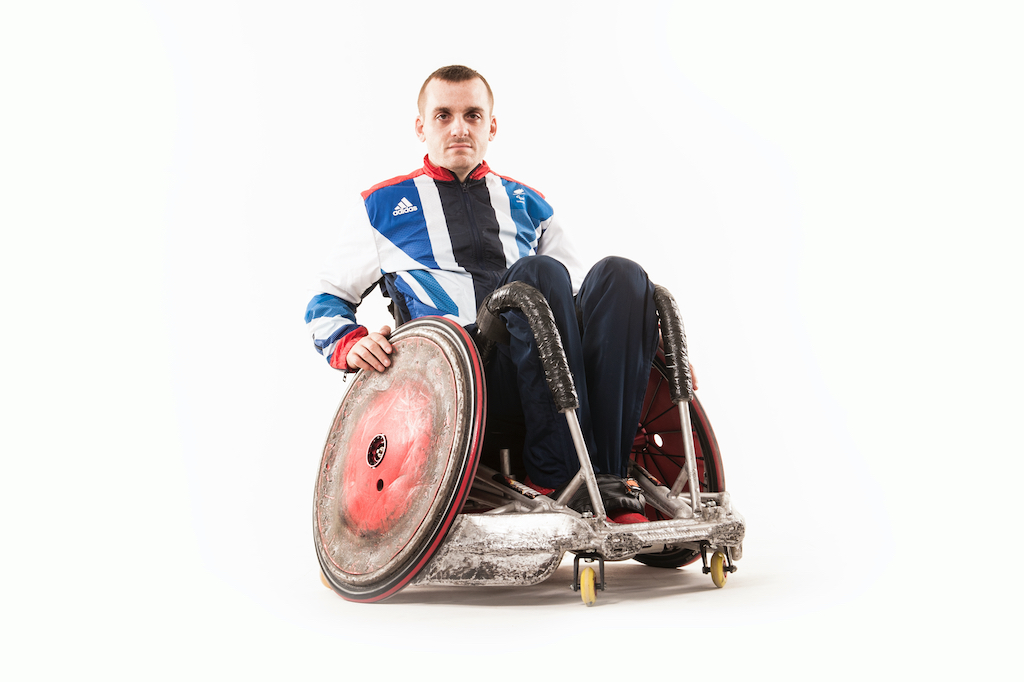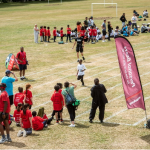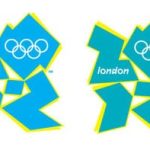An interview with Andy Barrow, Triple Paralympian

Andy Barrow – Paralympian GB – 2012
Tell us about your role in the 2012 Paralympics
I was there as an athlete. It was my privilege to represent Great Britain at Wheelchair Rugby. You spend years prepping, and for disabled sport the Paralympics is the pinnacle – our shop window – and for it to be at home in London was an absolute pleasure. Sport is business for us, but knowing it was my last one as I was retiring, just to step back up and away from it and admire it for more than sport. We did the job!
What did the 2012 Paralympics mean to you?
I was extremely proud to play a small part in it. No-one plays a huge part, everyone does their bit – the planners, volunteers, people who lay the bricks – and are all as important as one another. East London and Greenwich had such a big part in it and the UK got behind it. There was negativity in the press beforehand, but then everyone get on with it and got behind it – the Dunkirk Spirit. One of the nicest things at the Games for me was to see friends that would never usually see me compete, and the amount of disabled children around the Olympic Park. Today, athletes coming through say they watched 2012. In terms of legacy, it’s never as much as people want. For London, particularly the Olympic Park, the LLDC is doing great stuff there and it has a strong board; East Bank development with UEL there and lots of new residents there. It feels like a town, not soulless, and locals are using it. Hackney Bridge – by the canal, you can go for a beer, there are restaurants; and there’s Covid remembrance garden (The London Blossom Garden), a nice reflection area.
Since retiring as a Great British wheelchair rugby player, you have been extremely busy. Tell us more about your work since 2012
Looking back, it’s been varied. At first I did a lot of inspirational speaking, especially with children around Greenwich. It was my own project – doing assemblies, including Legacy, teamwork and nutrition – and I came into contact with ELBA via Chaucer. Chaucer sponsored me as an athlete and they kept me on, doing some of their CSR work, including creating team building days for children with challenges. ELBA was the gateway charity for this in east London – Newham and Waltham Forest – working with schools like Lister.
Then I did more of my own stuff and applied my learning. I worked at an international school in South East Asia, a very privileged school, and the opportunity allowed me to also work with local schools, where I connected with the Rotary Club. I worked in Thailand, and ahead of the 2020 Olympics and Paralympics I worked in Japan – doing a bit of good. Then I slid over into access and assisted travel in airports – as an athlete I did a lot of touring travel and knew about being assisted in dignified way. I then went on to do this work in the train industry. I had a bad incident when travelling by train, so I got in front of their access manager and made some changes, and we have turned it around over the last three years. I am on the board of charity Imago (www.imago.community), which works across London, Kent, Medway and East Sussex to promote social action and support independence and empower communitie. This was a gateway organisation I worked with that brought me into contact with ELBA. I also sit on the GB Wheelchair Rugby Board – this is my contribution to wheelchair rugby rather than coaching, which I never wanted to do.
Ten years on from the London Olympics and Paralympics, in your opinion what legacy has the Games had on east London? And, what more can ELBA do to support east London?
The Games has had a huge legacy on regeneration and service, and those involved have been mindful of making sure they don’t gentrify the area, but directly benefit east Londoners. For ELBA, your role can be to be vigilant of this. in this, to help make sure that those that have grown up in East London are not pushed out by changes, but that everyone gets opportunities. I remember ELBA telling me that many local people did not feel like they could access many of the opportunities and services in east London. Hopefully local people fully identify with the Olympic Park as theirs – rather than it being just for the ‘pale, stale male’ – and the diversity is reflected in the facilities.
Do you have any inspirational words to leave with our reader
Take the opportunity! I believe life is a series of opportunities and even in some of our most negative moments there are positives. If you get in the frame of mind to look for the moment in the darkest days. I had a terrible day when I was 17 that left me paralysed from the chest down. I have had a lot of help along the way and I have worked hard. During Covid, I watched the Olympic Park and how it changed through the seasons. I noticed the small things I had never noticed before, the small changes. Look for the positive and take opportunities.
Andy Barrow interviewed by Andrea Rannard-Lambert on 14 July 2022
To stay up to date with the latest news, opportunities and success stories, please sign up to receive our monthly newsletter, here.



